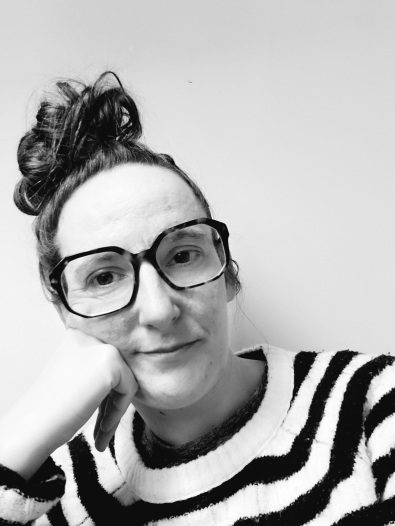If someone asked you what you’re sad about, you couldn’t tell them, not exactly. All you know is it is like a battery. It fuels you to run, get things done, till one day, you stop, left only with the toxic residue.
When you water the lilies, they die. You don’t tell anyone your mother died a while ago, and no one asks you. You feed your cat, only to never see her again. You bake a cake, following the recipe to the last teaspoon, but it collapses at the center. You have a date, but he stands you up. Trains leave before time, without you. The bus driver does not wait even when he sees you in his mirror, running full tilt, your bag and scarf and hair flying. Your sadness grows, and in a strange way it makes you feel good. This is what you deserve, you tell yourself, you deserve to be alone with your collapsed cake.
Some of your mother’s books sit beside your bed. The ones she’s written, flanked by others she gifted you that you never opened. You pick one up at random, open a page, but the words dance and you shut the book to prevent the text flying off. You check yourself out in the mirror, but you reel back from the woman staring at you. Your short red dress and your swimsuit will never fit you again. Grief has bloated you up. A washed-up, orphaned divorcee.
You’re young. Barely fifty, even. You can’t give up yet. Your mother was seventy-nine. She used to paint her nails red, walked on the treadmill, got her hair done each Saturday. You stare at her photo on the back jacket of her book, smiling, her long red hair gathered on one shoulder, blush on her cheeks, every inch the writer of romance novels.
You pick up a book at random from her library of self-help tomes, and in its blurb you find the words she used to toss at you over the phone: you manifest your destiny.
Make decisions, she used to say. So you sign up at the gym. Take baking classes. You spot a red car you like while on the way to the furniture store. Secondhand, but who cares. You buy it right away, but you need driving lessons. At therapy, you talk about your dead mother, your cheating ex-husband, the absent father. You wonder about taking up the clarinet, set up an account on a dating site. You will manifest your destiny, dammit.
Months later you’re staring at the ceiling, a snoring man beside you, his arm heavy over your bare breasts. It was very good, you told him before he mumbled off to sleep. You still don’t fit into your red dress, but you’re on your way to it. A ginger tabby sleeps at your hearth. Your car hasn’t broken down in weeks, and this man beside you chowed down your red velvet cake. You haven’t thought about your mother in months. None of that battery residue shit. You’ve reinvented your life.
Beside you, the snoring grows louder, the hand on your chest heavier. You’re lying inside of a coffin, lined with white silk like your mother’s. You’re wearing your red dress, with a red jacket on top to hide your cleavage. You’re buried in bouquets of white lilies, the air heavy with their oily fragrance. You’re alone. Your red hair is tied up in a bun, your eyes are closed, your hands crossed over your heart, with red-painted nails.

Damyanti is an Indian author currently based in Singapore. Her short fiction has been published at Smokelong, Ambit, Litro, and Puerto del Sol, among others. Her work appears in various anthologies, and she serves as one of the editors of The Forge literary magazine. Her debut literary crime novel, You Beneath Your Skin, was published by Simon & Schuster India, and optioned for screen by Endemol Shine.


